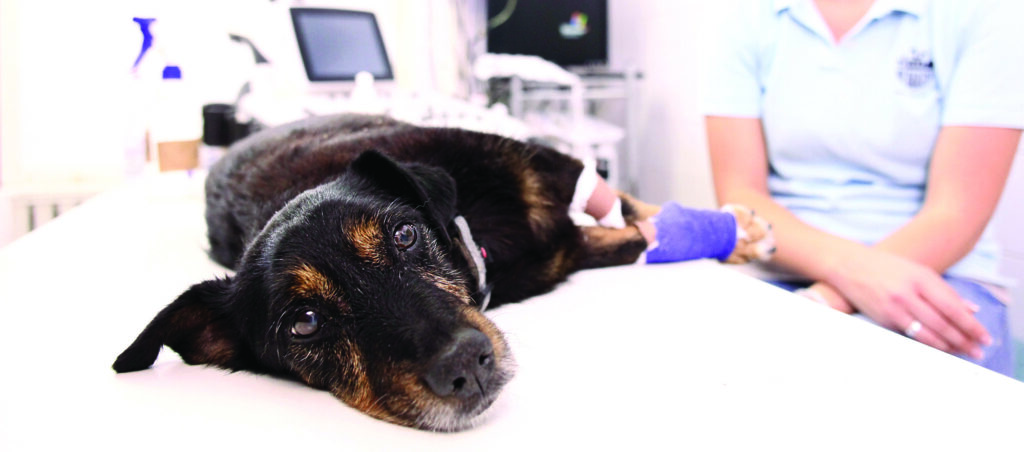Pancreatitis is more than just a pain in the gut, it can be a life threatening condition that all dog owners should be aware of.

What is the Pancreas?
The pancreas is a small gland in the abdomen found just below the stomach and serves some very important functions in the dog’s body. It’s endocrine function is to secrete insulin into the bloodstream to control blood glucose metabolism. It’s exocrine function is to release digestive enzymes that digest fats, carbohydrates and proteins.
What is Pancreatitis?
Pancreatitis is when the pancreas becomes inflamed and can be either an acute or chronic condition. Acute pancreatitis has a sudden onset with severe inflammation of the pancreas. Chronic pancreatitis is a long term ongoing condition with generally mild inflammation of the pancreas over a long period.
The Symptoms of Pancreatitis
The symptoms of pancreatitis can often be confused for other conditions making it difficult to diagnose. Acute pancreatitis symptoms can vary in intensity and become more severe as the inflammation increases. Chronic pancreatitis symptoms are often milder and can be on and off over a long period of time. Symptoms include;
- Decreased appetite
- Depression or lethargy
- Vomiting
- Diarrhoea
- Abdominal discomfort/pain or distention
- Raised temperature
- Dehydration
Causes of Pancreatitis
The greatest cause of acute pancreatitis in dogs is when a dog gets fed a one off high fat meal. Feeding human foods, table scraps or eating something from the garbage is a common cause. Sometimes a dog will develop pancreatitis and the cause will remain unknown. Factors that may increase the risk of a dog suffering from pancreatitis include;
- A high fat diet or ingesting one high fat meal (like the fat from the ham or sausages), garbage or an unusual meal.
- Diabetes mellitus
- Obesity
- Hypothyroidism (or other endocrine diseases)
- A severe abdominal injury or blunt trauma
- A blocked pancreatic duct
- Bacterial infections
- Some breeds are more predisposed to pancreatitis mainly smaller toy breeds, Terriers, Poodles and Miniature Schnauzers
- Certain medications can increase the risk
Diagnosis and Treatment of Pancreatitis
To diagnose pancreatitis a veterinarian will take a detailed history, do a physical examination, look at the clinic symptoms, run blood tests and possibly do an ultrasound to look for inflammation of the pancreas. Treatment usually involves hospitalisation and supportive therapies to manage and relieve the symptoms. This typically involves intravenous fluids, pain relief, anti-inflammatories and anti-nausea medications. They will be kept on a low fat diet and fed small amounts a number of times a day. They may have a nasogastric tube placed if they are not eating on their own.
Ongoing Management of a Dog After Pancreatitis
The management of a dog that has suffered pancreatitis will depend on the underlying cause, if known, of the onset. However, for all pancreatitis dog’s an important part of post pancreatitis management is the diet. Straight after a bout of pancreatitis a dog should be on a very low fat diet to allow the pancreas to heal and recover. Long term the dog should be kept on a low to moderate fat, well balanced diet. Ensuring that they are not fed too many treats or unnecessary foods is important. It is also believed that Probiotics and prebiotics are beneficial and improve gut health to help with the digestion process.
More Information on Pancreatitis
For more information tune into the myPET Podcast episode on Pancreatitis In Dogs where Aria and vet-n-pet DIRECT’s resident veterinarian Dr Glenn talk about everything you need to know. You can listen to the myPET Podcast on the vet-n-pet DIRECT YouTube Channel, through iTunes or Stitcher, or listen through www.vetnpetdirect.com.au.
